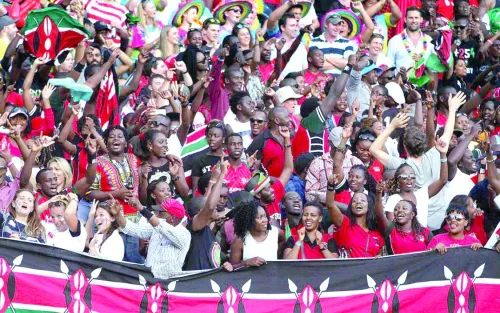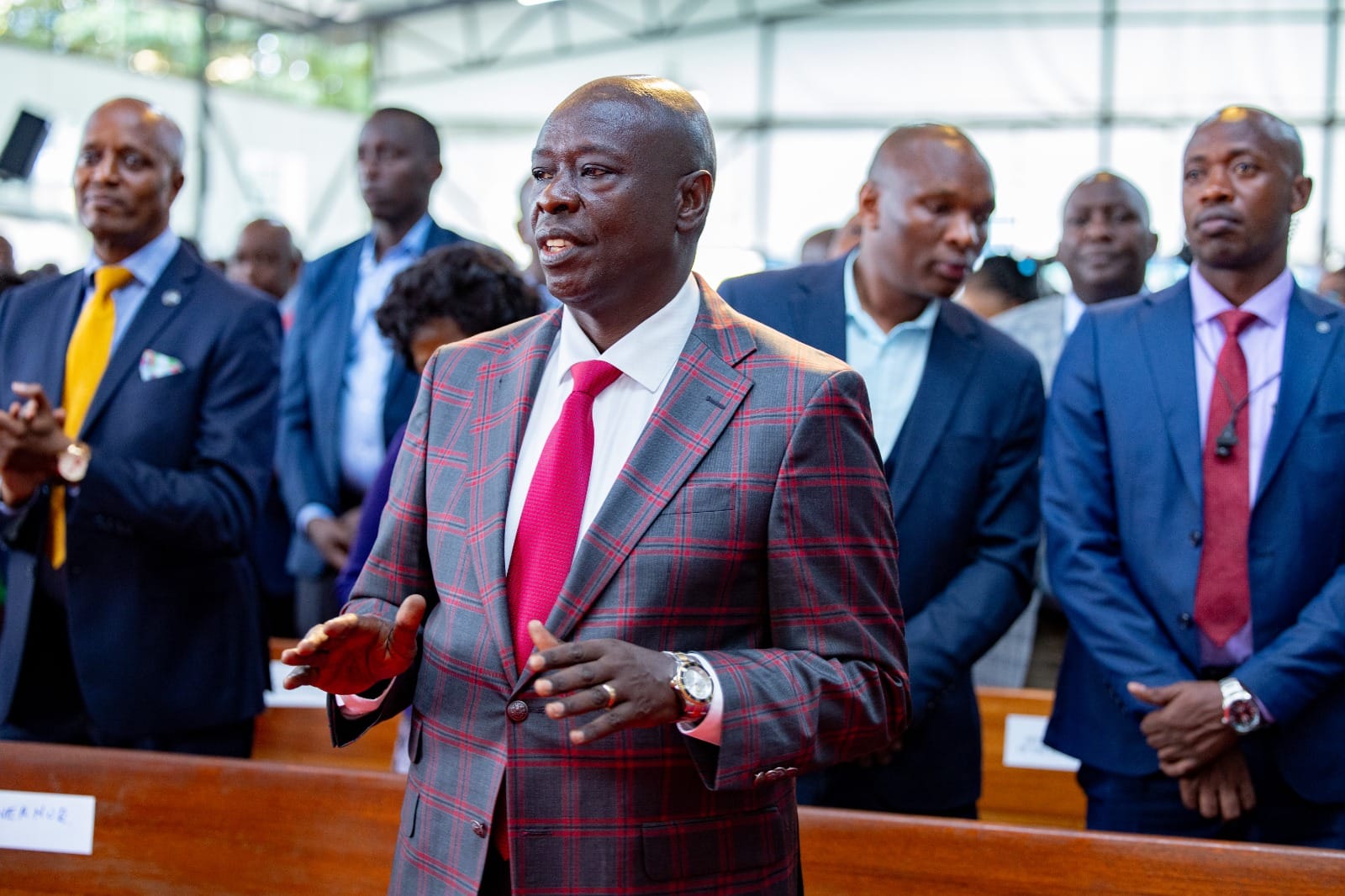Kenyans living and working abroad whom we call Diaspora Kenyans are the single biggest contributors to the Kenyan economy today and that is just from remittances which is money we send to our families, friends, and business partners.
In 2022 the Kenyan diaspora remittances contributed Sh. 483 billion to the Kenyan economy and was the biggest forex source of revenue in the country. In the same year, Tourism was the second contributing Sh. 268 billion followed by tea with Sh. 163 billion and horticulture with Sh. 152 billion. Those are numbers and figures nobody dealing with and responsible for the Kenyan economy should ignore.
Here are the we need to ask to move forward in better ways. How much money does the Kenya government spend to lure tourists to Kenya and promote tourism by building facilities for tourists? How about financing the tourism ministry and industry plus all other things every year? Tens of billions or even more.
How much money does the Kenyan government spend on the tea industry? Just now there is a Sh. 4 billion bailout for tea farmers and that is on top of other billions spent to help produce and export tea. And the tea farmers and workers deserve that for helping sustain the Kenyan economy.

Coffee farmers do not feature in the top sources of income for Kenya but they too just got Sh. 4 billion as bailout money for farmers whose income is dwindling. The farmers deserve that money because coffee is a big part of the Kenyan economy.

How much money does the Kenya government spend on Diaspora Kenyans who are the biggest contributors to the nation’s economy? Zero plus Zero and that is fine because we do not need the Kenya government to spend money on us. You work out here you get paid and build your own family. That is life and you work hard for whatever you get.
One of the real nightmares we have out here as Kenyans are trying to renew our Kenyan passports even in emergencies. That is a practical thing the Kenyan government should handle very quickly.
I know that practically because not long ago my sisters called me and told me our beloved mother had passed away. I packed my bags and was ready to go but I needed to renew my Kenyans passport. I sent all the information plus copies of my expired passport and ID card to the Kenyan embassy in Ottawa.
The embassy sent all that information to Kenya and it was taking weeks. My family and I had to keep the dead body of my mother in some half-working freezer in our town waiting for me because my mother wanted me to be at her funeral.
When I sent that information through our Jukwaa website, Kenyans from everywhere bombarded the embassy with calls and even practical trips there demanding that I get the passport to go to my mother’s funeral. Under panic and pressure, the embassy sent me a new passport and I rushed home it was a good thing to be with that woman, Alice Ogalo Adongo, who brought me up and demanded that I have to make it to the University of Nairobi.
That is the reality and incidentally, the Kenyan passport I got just expired this year, and when I called the Embassy it was the same ball game and now they want me to get some digital ID from Kenya which I have no clue how to do. I will deal with that later.
Instead of the Ruto government dealing with such practical things to make the life of Kenyans outside the country better and to let them know that they are always welcomed back at home they come up with fantasy nonsense like DP Rigathi Gachagua did during his trip to Belgium
“The issue of double taxation is a thorn in the flesh of Kenyans living in the Diaspora. It was raised in Brussels, Rome, Colombia, Angola and South Africa. The government is addressing that matter. For us to get support from Diaspora in remittances we must sort out the issue of double taxation. I want to assure you that various laws are being looked into and a comprehensive review is being undertaken with a view of getting a legislation where you do not get double jeopardy by being taxed in Germany and Kenya,” said the Deputy President.

I am glad DP Gachagua raised the issue of taxes on remittances by Kenyans abroad. I send money through M-PESA and they are super efficient in delivering the money and it is done.
Now when my niece is in hospital and I have to send something quick for medical costs, the first thing is how much is it? Then you go to M-PESA online and they tell you how much you pay in your currency. We have no idea how much of that is tax or exchange rate but you pay according to their calculation.
Can Kenyans know how much of the remittances they send is tax? That would be a good start.
According to the Global Knowledge Partnership on the Migration for the World, the cost of money transfer is a problem in many countries in Africa.
- The cost of sending money varied widely across corridors in the region with Tanzania-Kenya and Tanzania-Uganda rated among the five most expensive corridors alongside Angola-Namibia, South Africa-Angola, and South Africa-Botswana.
- Remittance costs from Tanzania to Kenya went up to 17 percent in the fourth quarter of 2020 compared with 14.5 percent in the fourth quarter of 2019, while the rise for Tanzania-Uganda was even steeper from 15.2 percent in the last quarter of 2019 to just over 21 percent in the fourth quarter of 2020.
- The lowest-cost corridors in the region averaged three percent for transfers primarily to the Philippines, while the highest-cost corridors, including Tanzania-Kenya and Tanzania-Uganda, averaged 13 percent.
The biggest issue that Diaspora Kenyans want to talk about with the government is the opportunities for investment at home.
We all invest at home. My investment at home is in housing because my sister has been in the business for years so she is the one helping me. But there are so many other things Kenyans in the diaspora can invest in if our government can open their eyes and see what they are missing.
I am talking about the Kenyan government giving Kenyans in the diaspora a tax break to buy and bring industrial production equipment and materials to Kenya without double taxation.
Today if a Kenyan living and working out here buys equipment to set up a bakery in Kenya you pay tax for it here and when you bring it home you pay a million other taxes from excise duty to VAT.
It makes such investments completely impossible and it is a shame really because if that problem is solved we are talking about trillions of shillings of investment a year from Diaspora Kenyans and the remittances for health and family needs would still be coming in. Who can lose with that?
Let Kenyans out there buy and bring farming equipment home to grow our economy without double taxation.

Remittances is what we send to our families to keep them going. It is emergency money. From the folks out here it is what you send after you fix budget and you know it is something you have to send. It is school fees for your nephews and nieces. Medical expenses is the biggest budget for me. Training programs for the kids. Then you have to build a house for your mother.
So remittances is change money in terms of what Diaspora Kenyans can do to invest in their country and help our economy grow.
Investing opportunities for Diaspora Kenyans could unleash an economic giant for the country which we already have. It could be earth-shaking for the country for good reasons and great results. Let’s work on it.
The best way to facilitate the much-needed import tax-free investments for Diaspora Kenyans is to enact a Diaspora Start-Up Investment law which allows people to get the tax-free investment to start a new enterprise by importing equipment and other needed capital investment. After that, those business enterprises operated like any other Kenyan business.
In fact, the Kenya government can even set up a Kenya Diaspora Bank to allow Kenyans outside the country to set out their bank and put money into it for investments by themselves and all Kenyans.
A Kenyan Diaspora Bank registered in Nairobi would receive hundreds of billions and it could go to trillions of Kenyan shillings in a few years. These folks are already contributing Sh. 483 billion a year just from remittances. What could they do with their bank in Kenya?
Then the contributors can set up interest rates for members maybe at 3% to use the money for investment in the country and the country could bloom with that.
The purpose here is to bring in that huge amount of investment capital from outside the country from Kenyans and we know it comes in the form of much-needed industrial equipment and foreign currency.
If there is one thing I know about Kenyans in Diaspora and I have been out here 34 years in and out of the country, it is that they love their country regardless of their political affiliations. Any chance for them to invest in their country and prosper will be welcomed and embraced. Thank you very much.








